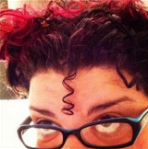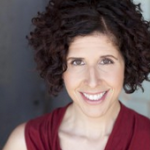Members of the Daily Post crew share some of their favorite editing tips (multi-colored pens: recommended).
Like most activities we subject to intense procrastination, editing our drafts is something we dread starting, but never regret once we’re done. To give you a push next time you’re staring at the screen, we’ve assembled a few time-tested editing tips straight from The Daily Post crew. Do try these at home!
Ben Huberman

My not-so-secret self-editing tip (I give it all the time) is to read your text out loud.
Your eyes will often gloss over awkward phrasing, missing punctuation, and poor word choices (to say nothing of basic typos). Your ears won’t; they’ll force you to stop.
I find this technique especially effective when you’re giving a completed draft its first read-through. You might be dying to hit the “Publish” button and call it a day, but your voice will force you to slow down a bit and zone in on any remaining problem spots. These might not be huge on their own, but cumulatively they can make solid writing feel sloppy.
Erica Varlese

My self-editing tip? Let it rest.
A good night’s sleep, or even an hour away from the computer, clears my brain, letting me come back to my writing with a fresh perspective. If you re-read your work immediately after writing it, it can feel repetitive and the words may not fully sink in, making it easy to miss spelling errors, redundancies, and odd phrasings.
By letting your words rest and subsequently settle, it’s much easier to pretend you’re a new reader and pick up on improvements you wouldn’t have caught otherwise. At times, this tactic requires some extra planning, but it’s well worth it for the few extra tweaks you’ll pick up on.
Wendy Scott

Ben and Erica covered two of my favorite tips, but I’ll add this: don’t rely on spellcheck.
Spellcheck is fine to use as a first pass, but don’t assume that it will catch everything. Spellchecking tools generally have a hard time identifying misspelled homophones (for example, here and hear, or there and their) and commonly misused words like affect and effect.
Spellcheck isn’t always reliable in picking up on grammar errors, either, such as misplaced modifiers, run-on sentences, or subject-verb agreement. Finally, spellcheck usually doesn’t flag typos if they are correctly spelled words. For example, I can type “park the care” and spellcheck thinks that’s fine when it really should be “park the car.”
The bottom line is that spellcheck can help, but there’s no substitute for putting your own eyes on your writing to spot and correct errors.
Krista Stevens

Get a trusted reader. Joan Didion and John Gregory Dunne shared work with one another at the end of the writing day. William Whitehead read Timothy Findley’s work aloud each evening, over a glass of wine. If Whitehead stumbled over a passage, Findley knew readers would, too.
Your trusted reader is someone who will help you identify clunky writing, muddled constructions, and hazy thinking. They’ll gently call you on being pompous and verbose; they’ll be your loving accessory to murder as you kill off your darlings. They’re your writerly soft place to fall, that person who reads your hideous, misshapen first draft and sees that first draft for the shining piece of writing it will be, not the ugly, half-formed, drooling creature it is now.
Michelle Weber

My editing secret is to go old-school: it might seem counterintuitive for a blogger, but when in doubt, print it out.
(I’m not sure if I’m offering useful advice here, or just showing my age!)
Reading my work on paper has lots of benefits for me. On a nitty-gritty level, it’s easier to spot typos when I’ve got a physical red pen and can scrawl on a piece of paper. On a broader level, seeing my whole post at once helps me evaluate it as a complete piece of writing in a way that is more difficult when I’m viewing words on screen, a few paragraphs at a time. When I can consider the entirety of a post, it’s easier to step back and see where there are holes and to evaluate the overall flow. If I’m feeling especially stuck, I might even cut the paper up so I can shuffle the paragraphs around and see how they read in a different order.
A witty turn of phrase doesn’t mean much if the whole post doesn’t hang together. There’s no better way for me to make sure it does than seeing every word arrayed before me.
Also, what Erica said.
Andrea Badgley

Wield the red pen.
I like to touch my writing. When I’ve got a draft ready, I print it out on paper and use multi-colored pens for down-and-dirty, nitty-gritty editing.
If I am writing a descriptive piece, I select five different colors of fine-tipped markers to mark sense words. For example, I’ll circle sight words in blue (balloon), audio words in green (pop), smell words in yellow (smoke), touch words in red (scald), and taste words in orange (oily). When I’m finished, I can glance at the page and see the distribution of colors. If the piece is awash in blue, I’ll know I’ve focused disproportionately on sight words. If I see no green or red, I’ll know I need to add sound and texture to pull the reader into the scene.
Colored pens work for sentence variation as well. I might circle all terminal punctuation for a quick glance at sentence lengths, or underline fragments in pink, simple sentences in yellow, and compound sentences in turquoise. If I see all long sentences, or see no pink or yellow on the page, I’ll make sure to pop in a fragment or a simple sentence to add punch.
Elizabeth Urello

If it’s an important piece of writing, I’ll sometimes write it again from scratch. This is especially helpful if you know there are sections that need to be revised, but you feel like it’s “finished” and are having a hard time editing it.
If you pretend you lost your original piece and write it all over again, the stuff that’s still in it is probably genuinely important. The stuff you forgot or left out? Probably didn’t need that anyway. And if you don’t like your rewrite, well, you still have the original, so no harm done.
Robyn Okrant

My colleagues have awesome ideas. I’m going to steal piggyback on one of them: I read everything out loud when I edit, just as Ben has suggested.
If I cringe when I hear my own work, if I’m rambling and don’t have a consistent tone, or wonder why my ideas don’t seem cohesive, I imagine I’m reading the text to a specific person.
It’s important to pick the right audience: my mom is an awesome imaginary audience for humor, wordplay, and clever dialogue. If I am attempting concise, persuasive language, I visualize a particularly tough professor I had in college. Finally, if I want an angry diatribe to sound focused and biting, I pretend I’m face-to-face with Kris, a girl who bullied me in elementary school. Seriously, she was awful. Sure, therapy might help, but why get rid of that resentment when she is such a great editing tool?
What’s the best editing tip you’ve ever received? How do you go about the self-editing process? Let us know in the comments!
Currently blogless? You’re a click away from sharing your story.
Create your blog at WordPress.com
I like to subject myself to public humiliation. After posting early in the morning. I go back and read my writing. I then correct my typos, bad grammar, rhyme, meter,…. oh heck, I basically rewrite the whole thing and hope everyone else was half asleep when they first read it too.
LikeLiked by 6 people
You do write early in the morning, Tom! Most of the time, your post is the first I read. I think your posts are always perfect!
Wait, back to the subject – I read and write mine most of the time – in the train. I cannot read it out loud. Though I know my hubby does and would gladly text me of what he thinks should be. I would LOVE to have it printed out just so I can use my multi-colored pens. If I write on paper though, I’d like to use this Pilot Frixion pen. An awesome pen. No, I do not work for Pilot. Though I secretly wish I do. Oh and maybe 3M wouldn’t be so bad either.
LikeLiked by 2 people
I always advise people to read their work out loud. Maybe it’s because I started in radio, but if it doesn’t read well, if it sounds awkward, stilted, unnatural … that’s how you’ll know you need some rewriting. This is true for long pieces of work — books, novellas, stories — too. Even if it take hours, it’s worth it.
LikeLike
I agree with you, although not entirely. Novels are supposed to be read, so I think it’s all right if they “sound” ok when you read them silently to yourself. However plays and things that should be said out loud… I remember this one time I was participating in an acting workshop. The instructor told us to tell a story. I wrote a story and it seemed pretty good on paper. However I had to learn to say it out loud and when I started reciting it the whole thing sounded all wrong. So I ended up re-writing it from that perspective. The emphasised words, the pacing – all had to be re-written. It ended up being a great exercise.
LikeLiked by 1 person
Update your dictionary to label certain words as misspelled that technically aren’t. Manger for example, since it comes up when trying to type manager too quickly. I use one of those more often than the other at work and don’t want to have that mistake get missed.
Of course, for blogging, that only works if you you write in one place and then copy it over. 🙂
LikeLike
Wow, I needed that TODAY!
LikeLiked by 1 person
Krista, Andrea, Elizabeth – really great tips. 🙂 The rest I am already doing but your editing techniques take it to the next level. 🙂
LikeLike
Some (all) very useful tips here! I particularly like the multi-coloured pens one and will certainly be trying that one out.
Thank you for sharing.
LikeLike
I found that with writing in the go (writing in the train), equipping my phone with different apps (dictionary, picture editing, a steady hand and a huge data plan) would truly aid.
LikeLiked by 1 person
I really appreciate these posts! I’m new to blogging and your suggestions are absolutely fantastic. For today’s post, I especially like the comment on the colored markers. I haven’t tried that before and it makes a lot of sense. Thanks!
LikeLike
I write stories first on paper, and then rewrite it on the computer screen. It helps.
LikeLike
they are great advices. Next time I am gonna try it.
LikeLike
I already read stuff aloud, print it out and splash the red ink about, but that tip about colour-coding for punctuation and sense words is genius! Totally stealing that.
LikeLike
I agree with all of these and often do them when I write. Especially agree with not relying on SpelI-check. I pay attention to the little red Spell-Check lines, but never count on it, “form past experience.” 🙂
One thing I’d encourage readers to do: check your work for sentences that start with “It is” and for the words this and that. Ask yourself, will the reader know what “it is”? In a complex sentence, is it clear which phrase “this” or “that” refers back to?
For example: “My sister choked on a peanut one day and my brother whacked her so hard to dislodge it that he cracked one of her ribs. She was in pain for days. That’s why she has such an aversion to peanuts.” Why? Because she choked on one or because she remembers the painful broken rib? Most people will assume the whole experience gave her this aversion, but make sure your meaning is clear.
LikeLiked by 1 person
Sometimes, I read my post backwards. Not literally backwards- just starting with the last paragraph, and then working up. It helps me focus on each paragraph as it’s own. It’s easy to get lost in your own voice reading through transitions.
LikeLiked by 3 people
That makes a lot of sense. Never thought of it before.
LikeLike
I do this too! It’s actually the first thing I do when done with a post. I was back in High School when a teacher taught me this method…it helps with spelling and with content.
LikeLike
i think all the tools are very helpful for the starters. Frankly I am very bad at self-editing but after reading all the above tips, I will make sure to check my homework twice before publishing it.
LikeLike
There’s some good tips here but I found the best thing was to marry an English graduate; when I make an error in my blog it doesn’t take long for her to locate it!
LikeLike
This is a great article, and all of you have mentioned good ideas. Ben and Robyn, I agree with you about reading it to yourself aloud, and in fact I’ve already been doing that from the start of my posting.
Erica’s suggestion to let it rest for awhile is something I do also. As you mentioned, Erica, even an hour away will work wonders when you come back to the piece you’ve written.
Wendy, for what it’s worth, I don’t use Spellcheck and never have. Not sure why, but I’m a bit old-fashioned, I suppose. For those that need it, it’s a good suggestion, though.
Michelle and Andrea, that’s a good idea about printing it out, but unfortunately, I don’t have a printer. I don’t mind reading online anyway, though. Just as an aside, Michelle… did you know there was a typo in your suggestion? 🙂 Sorry, I’m an instinctive proofreader…
Elizabeth, that’s probably a good idea, but by the time I finish an article, I’m pretty well fried, so writing it over from scratch isn’t really going to be my cup of tea. As others have mentioned, I just take a break and come back to it.
Thank you all for your frequent posts and helpful hints – they’ve been valuable to me.
LikeLiked by 1 person
To edit effectively, a writer needs to know HOW they want their own writing to be. I don’t believe at all in this business of long vs. short sentences. That’s just arbitrary and numerical. Once the (critically important) proofreading is done and redone and re-redone, a writer needs to be able to see if his/her writing has to be in harmony with itself. Many writers think only of what their writing SAYS and not much about what it DOES, that is its effect on the reader. That’s the interesting level of editing, mastering the work to make it what a writer WANTS it to be.
LikeLiked by 1 person
That’s an excellent point. I am a copy-editor, and I think more than half the job is getting to know the author/writer/organisation I’m working for so I can reflect their character/writing voice in the text. It’s also one of the most interesting aspects of the job!
LikeLiked by 1 person
I learned over time that editing is the most interesting part to me of a writing project — not the proofreading, but the going back and making my work a unified whole that speaks as I want it to.
LikeLike
I’m individually taking a self-directed learning course developed by Brooks Landon, professor at University of Iowa, one of The Great Courses, entitled Building Great Sentences: Explore the Writer’s Craft. Landon promotes the idea of the reader gaining pleasure from reading, which I believe is what you are suggesting, Martha. That’s a new idea for me and one that I am now pursuing in my writing.
LikeLiked by 1 person
That is a very high value, in my opinion! Capote wrote that his own editing style (and he was a great craftsman, in my opinion) was at the sentence level. I thought that was bogus until I had to confront my own very overwritten mess of a novel. You can read about that at martinofgfenn.com if you want. It’s a common saga, I think. Sounds like a great course!
LikeLike
Please don’t misunderstand me but all these rules scare me. I started a blog so I could get my thoughts out there. So that people would ‘hear’ my voice on their screens. The many tips and guidelines are making me feel like I have to lose some of me in order for me to publish a ‘proper’ blog. So I guess my question is: if I don’t apply all these tips and rules, is that ok?
LikeLike
> if I don’t apply all these tips and rules, is that ok?
Of course!
The great thing about your blog is that it’s yours, and no blogging police is going to knock on your door — literally or figuratively — to make sure you follow this or that rule.
We publish posts like these for people who might find this kind of advice helpful, definitely not in order to establish some sort of universal standard. In other words, what a “proper” blog post is depends entirely on the individual blogger.
LikeLike
Thanks for responding 😀 Was feeling a bit pressurized for a moment
LikeLike
I certainly don’t think of these as rules. Many of us are less than satisfied with our writing and are constantly seeking tips or tools to help us improve what we don’t like in our work. If you are satisfied with your work there is no reason you should feel compelled to scrutinize it for perceived flaws. Example: I probably wouldn’t use Andrea’s suggestions for sense words because that’s not an issue I have with my own writing. But i do often find that i have repeated a verb within 2 sentences , and i don’t want to do that, so I might adapt her trick to verbs. Because that’s where I personally want to improve .
LikeLike
Excellent advice! I especially enjoyed reading Andrea’s editing tip. It’s something I’ve never done before, but seems like it would be quite effective.
LikeLike
Loved all the great advice- I had never thought of printing out my work before, but that seems like something that would be really helpful!
LikeLike
Thank you all for your wonderful tips. I’m starting off on my blogging journey and I need all the advice i can get.
http://www.littlemissvegancakes.wordpress.com
LikeLike
Hi @dazedfordayz, welcome to the Daily Post! The best place to ask for feedback on your blog is via the Community Pool feature we run each Tuesday.
Here, it’s a bit off-topic.
LikeLike
I haven’t had a chance to read all the comments yet (except for the delightful spam that called me ‘web people’…) but I love these suggestions and employ some of them. Always happy to have a chance to play with color, so definitely will be trying Andrea’s. In addition to reading out loud, I sometimes employ the excruciatingly painful exercise of ‘recording myself reading myself to myself’. Sounds weird; and it can be difficult to get through when you hit playback, unless of course you enunciate like Emma Thompson. Really helps, though, with particularly tricky passages.
LikeLiked by 1 person
I am definitely a big of reading my posts out loud before publishing. My problem is, I become over excited about a post and can’t wait to publish it. I end up regretting it. I find myself panicking as I read it back over and find little mistakes here and there. Nothing will make you race to the edit button more quickly than an accidental incorrect form of ‘there/they’re/their’.
LikeLike
*big FAN haha
LikeLike
i never draft any of my articles (maybe i should) i write them straight just before i have to post. what i do when i am ready to hit the publish button is preview my post first and read it from there. for some reasons, i can see what have to be done better when seeing the
clone of a finished product. then i tweak it here and there and hit publish. for the next seven days, i will read what i have posted daily and edit as i go along. after that, they’re on their own.
LikeLike
These are great tips! Thanks for the reminders and ideas.
LikeLike
I love these suggestions. Such pearls!
LikeLike
When editing diatribes, I pretend I’m face-to-face with certain elected officials. I pretend my mother is on the scene to make certain I remain a lady.
LikeLiked by 1 person
I read my stuff out loud. A trick my English Prof. taught me was to read my work, out loud BUT start with the last sentence. It’s a great way to pick up fragmented and awkward worded sentences, since you are forcing yourself to see each sentence independently.
LikeLike
Should be “awkwardly worded sentences” oops
LikeLike
Really helpful tips! Another editing tip that works well for me is to get someone else to read your material. It may all make sense and flow in your mind, but it may sound a bit confusing to someone else. I find it beneficial to to get at least one reader’s input before publishing.
LikeLike